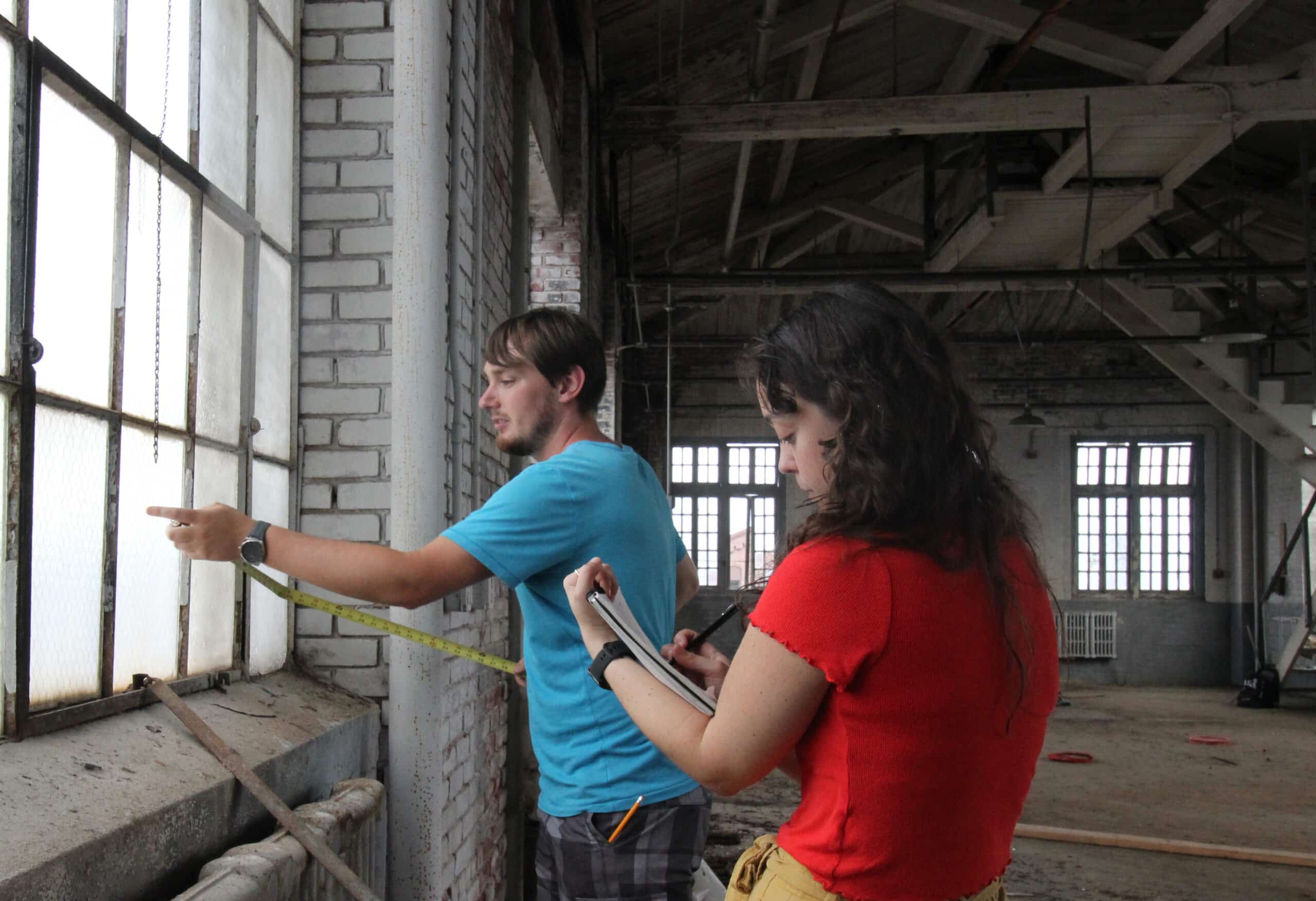The best way to learn is often by doing. Research shows that learning through practical means helps students better apply their knowledge to real-world problems in a more effective manner. For students, this is realized through work — placements, internships and part-time jobs that help expose and push them in different ways.
The challenge is in balancing this work with their studies — something most students struggle with. Students at Thomas Jefferson University, however, have no issues in this regard. They have a suite of support for its students to constantly seek out new experiences that will enlighten and enrich the content that is taught in their programs.
Take Emma Connolly. She’s a student at the College of Architecture and the Built Environment (CABE), where she’s currently pursuing an MS in Historic Preservation. In classes, she’s exploring the significance of irreplaceable historic buildings, monuments, communities and landscapes as well as historic preservation’s role in maintaining built heritage and how existing building stock can be used in finding solutions to the growing climate crisis.
It’s gripping stuff for Connolly — which is why she’s grateful she has a side hustle that lets her apply what she learns. “I was lucky enough to be offered a graduate assistantship with Jefferson’s Centre for the Preservation of Modernism,” she says. “In this role, I work with Dr. Suzanne Singletary on various research and editing projects as assigned.”

Emma Connolly is balancing her graduate assistantship with her MS in Historic Preservation. Source: Thomas Jefferson University
That’s not all. Connolly is also a part-time employee at the New Jersey State Historic Preservation Office (SHPO), where she assists with architectural review through Section 106 of the National Register of Historic Places Act. “In short, this means that any project in New Jersey with state or federal funds is reviewed by our office for potential impacts to historic properties either listed on or eligible for listing on the State and National Register of Historic Places,” she says.
Connolly’s decision to take on additional work was deliberate. Of course, it was a great help in funding her studies. Outside of that, she was enthralled by how hands-on it allowed her to be. She’s well aware her assistantship and part-time work will give her an edge as a graduate as well.
“It’s been rewarding to apply the skills I’ve learned at SHPO to my coursework and vice versa,” she says. “For instance, several courses deal heavily with applying the National Register Criteria for Evaluation to the buildings we study in class. My work at SHPO necessitates in-depth knowledge of these criteria but doesn’t offer many opportunities for me to research and apply them to properties myself. At Jefferson, I’ve been able to round out my knowledge and skill set.”

Nika Faulkner hopes to create a more productive and inclusive future through her work in historic preservation. Source: Thomas Jefferson University
Alternatively, students can choose to sign up for internships with companies that Jefferson has strong ties with. Nika Faulkner was one such student to take advantage of this. She interned with the City of Philadelphia for the Philadelphia Historic Commission, as well as the Heritage Consulting Group in Chestnut Hill.
“While working with the city, I realized just how many historic properties that are significant to minority groups fall to the wayside when being considered for protection or celebration,” she shares. “I also learned that working as a public servant in the realm of preservation means that your duty is first and foremost to the community and to facilitate productive discussions concerning the cultural resources that belong to them.”
This emphasis on practical learning is explained by the fact that programs at CABE are designed for students to gain as much exposure to their field of choice as possible. “Jefferson’s MSHP program makes a concerted effort to provide its students with opportunities to engage with the Philadelphia built environment and preservation community, which is something I greatly value as a student,” shares Connolly.

At Thomas Jefferson University, all students are encouraged to apply their knowledge through hands-on work. Source: Thomas Jefferson University
This stems across everything, from field trips to local archives or examples of adaptive reuse, condition assessments of campus and off-campus buildings, and creating measured drawings of local historic sites. One class even gave students the chance to assist with current preservation efforts in East Falls. “It was a unique and valuable opportunity,” adds Connolly.
Along the way, students are supported by a deeply compassionate and flexible faculty. “My professors have all been understanding of my responsibilities outside of the classroom and have been willing to work with me to plan and adjust due dates and requirements as necessary,” says Connolly. “With their help, I’ve been able to complete my coursework and part-time work with minimal disruption to either. As it currently stands, I work around 22 hours per week in addition to my coursework, so their flexibility has been incredibly helpful.”
The result? Students who have the experience and confidence to pursue work in the field they are interested in. Connolly, for example, has always wanted to work with the National Park Service in some way. Her work experience, part-time jobs and academic knowledge combined are increasing her chances of that with every passing day.
“Though I’ve only been in the program for a little under a year, I feel that I’ve gained so much knowledge,” she enthuses. “I’m excited to see what the rest of my time at CABE will hold.”
Follow Thomas Jefferson University on Facebook, Twitter, Instagram, and YouTube











